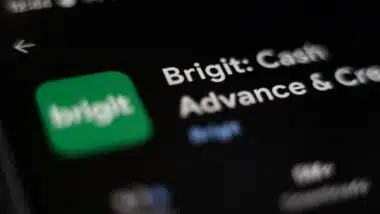
Since the invention of the telephone, businesses have worked to develop ways to reach a mass audience. An increasingly popular method is something called ringless voicemail, a technology that’s used to solicit consumers to purchase goods or services or to try to induce them into opening a line of credit account.
What exactly is this technology and what does the law say? Is ringless voicemail legal, or a TCPA violation that can lead to a TCPA lawsuit?
What Is Ringless Voicemail?
According to Nectar Desk, a company that sells call center software, ringless voicemail is exactly what it sounds like: voicemail messages that appear on your phone without a call ever being made. With this technology, a pre-recorded message is sent directly to a consumer’s voicemail inbox without the phone ever ringing, something that makes regulating these voicemail drops difficult.
Is Ringless Voicemail Legal?
Telemarketing is governed by the Telephone Consumer Protection Act (TCPA), which places restrictions on who can be called by telemarketers and when they can be contacted. Specifically, companies are required to follow internal and national do-not-call-registries and must have prior written consent before calling a consumer.
TCPA revisions added a national Do Not Call Registry to the law’s purview, acting in a similar way to company-wide do not call lists. By registering their number with the service, consumers can indicate to businesses that they do not wish to receive telemarketing calls, texts, or faxes.
After registering with the DNC list, consumers may still receive telemarketing communications for up to 31 days. However, after this period, businesses are required to comply with new additions.
If businesses violate any of TCPA’s statutes, they can face serious penalties. The federal telemarketing law allows consumers to sue offending companies for up to $1,500 in statutory damages for each violation (i.e. each call, text, or fax).
Although the laws on unsolicited telemarketing calls, texts, and faxes are covered by TCPA, businesses argue that ringless voicemails are not covered under this law. According to Bitmoto, a digital marketing and online advertising business catering to the automotive industry, ringless voicemail is not illegal. Because a call is never made, ringless voicemails arguably “don’t follow the same rigid restrictions as other phone call campaigns.”
However, car dealerships have been sued over these pre-recorded messages, and the lawsuits cite the TCPA as governing this marketing method.
In 2018, a federal court found that prerecorded ringless voicemails are in fact covered under TCPA laws, according to Tech News. “It did not matter that Dyck O’Neal (the defendant company) left direct-to-voicemail messages instead of calling Saunders before leaving a voicemail,” Westlaw writes. “The effect was the same: Saunders (the plaintiff) was notified that there was a new voicemail, and she would have to review and delete the message. The TCPA was created to limit harassment, as alleged in this case.”
In August, another federal judge came to the same conclusion in a lawsuit against a moving company. According to the Nevada federal judge, “ringless” voicemails still count as calls under the Telephone Consumer Protection Act. As such, the plaintiff who received prerecorded voicemails from the company was able to keep their claims alive.
Under the TCPA, telemarketers must obtain prior written consent before contacting consumers. This means that if you’ve received unwanted ringless voicemails from a car dealership, you may be able to file a TCPA violation claim or lawsuit.
What Other Cases Have Decided on Ringless Voicemail Legal Issues?
In one TCPA case filed in June 2020, Gurzi v. Penn Credit, Corp., (Case No. 6:19-cv-823-Orl-31EJK, 2020 U.S. Dist. LEXIS 107402), the defendant tried to argue that ringless voicemails do not violate the law because the phone never calls the telephone number assigned by the wireless carrier. The case was filed against a credit agency, and the judge found that the defendant was mincing words. In the end, the judge said the ringless voicemail violated the intent of the statute. The court said that in actuality the plaintiff’s cell phone number was the vehicle used to transport a message to that plaintiff, according to The National Law Review.
According to The National Law Review, on June 22, 2020, the court that ruled against Penn Credit made an unusual move of issuing a ruling banning Penn Credit from going to the Eleventh Court to pursue an interlocutory appeal. In its ruling, the court said that ringless voicemails so clearly violate the TCPA that the defendant has no grounds for an appeal.
After seeing a string of district court losses, the creator of ringless voicemail technology has started voicing his defense of the marketing tool. VoApps inventor David King has tried to defend ringless voicemail by explaining that each voicemail service provider has its own server, which ringless voicemail accesses through the use of a Forward-To-Number specifically assigned to an individual’s cell phone. His reasoning seems to be that ringless voicemail only communicates with the Forward-To-Number and not with any customer’s particular cell phone number.
So far, several court decisions have determined ringless voicemail does violate the TCPA because the end result is that the cell phone user’s time is interrupted with a voicemail that they must listen to and delete from their phone.
Why Do Car Dealerships Use Ringless Voicemail?
There are several benefits to using ringless voicemail to improve your business, according to Bitmoto. First, this method is apparently a much cheaper alternative because there’s no postage involved. These services can be set up quickly, allowing dealerships to create ringless voicemail campaigns for last-minute sales. Bitmoto also cites its Federal Communications Commission (FCC) compliance as a benefit to ringless voicemail.
“Our fully compliant RVM system is arguably the best way to get direct response from prospective buyers… making an unstoppable direct response campaign that will generate tremendous opportunities quickly.”
Bitmoto seems to imply that ringless voicemails are intentionally misleading and meant to induce consumers into responding. “Presto! Your prospect receives a notification that they have a new voicemail, assuming they must have missed the call. Often this prompts them into calling back.”
Does Ringless Voicemail Work?
Consumers who wonder “is ringless voicemail legal?” may also wonder if the tactic works. According to advertising companies that offer telemarketing services and leverage autodialer technology, whether the tactic works depends on the definition of success.
Trusted Ringless reports a 96% “answer rate” for ringless voicemails, meaning that most people listen to the magically appearing voicemail they discover on their phone even though it didn’t ring. The company also touts the tactic as a way to lower lead generation costs and offering a higher return on investment. The company says that ringless voicemail can be TCPA compliant, and, if so, opens up entire new markets of consumers whose cell phones may not be accessible due to TCPA restrictions.
Other advertisers note that the response rates to ringless voicemail marketing is higher than email and may be higher than for cold calls. Slybroadcast notes that finding the right tactic to use ringless voicemail in an advertising campaign can be “tricky” however. The company recommends using clear, concise messages and sending them to a limited number of recipients.
Strong Automotive, which notes that it no longer offers ringless voicemail services due to its “evolving legality,” notes that customers can listen to the voicemails on their own time and may be less invasive. They say that voice messages should be “believable” and sound natural and not as if they are read from a script. The advertising company recommends auto companies also send consumers emails or direct mail for “extra momentum.”
How to Stop Ringless Voicemail
 Marketing agencies may like this tactic, but many consumers do not. Luckily, there are things you can do to combat ringless voicemail.
Marketing agencies may like this tactic, but many consumers do not. Luckily, there are things you can do to combat ringless voicemail.
First, Tech News recommends filing a complaint with the FCC. Specifically, the FCC allows consumers to file a complaint if they have received unwanted calls from telemarketers. Remember, according to the 2018 ruling, ringless voicemails count as calls under the TCPA. The FCC has an online form you will need to complete, describing the problem you’re having.
Filing complaints with the FTC, consumers help the agency keep track of spam texts, calls, and faxes. This empowers the agency to take legal action against these companies and, in some cases, recover monetary compensation for both the government and consumers. However, there is additional action consumers can take to stop ringless voicemails.
After filing a complaint, Tech News suggests registering with the National Do-Not-Call Registry. This registry is maintained by the FCC and a failure to abide by it constitutes a violation of the TCPA.
Next, you may wish to sign up for a service to block ringless voicemails. Some phone carriers offer this service for a small fee while others only make these services available through third-party apps.
This method of telemarketing is relatively new, so the laws addressing it may become stricter over time. Methods to block ringless voicemails may be developed but telemarketing companies are likely to wage a fight to keep it legal.
Should You File a Ringless Voicemail Lawsuit?
Lawmakers have worked for years to protect consumers from unwanted and annoying telemarketing calls. Consumers can file civil lawsuits against any automotive dealerships or other businesses they believe have violated the TCPA or other state-specific telecommunications laws. If you’ve received spam calls or unwanted ringless voicemails from a car dealership, you may be eligible to file a ringless voicemail lawsuit.
ATTORNEY ADVERTISING
Top Class Actions is a Proud Member of the American Bar Association
LEGAL INFORMATION IS NOT LEGAL ADVICE
Top Class Actions Legal Statement
©2008 – 2026 Top Class Actions® LLC
Various Trademarks held by their respective owners
This website is not intended for viewing or usage by European Union citizens.















2 thoughts onWhy Do Car Dealerships Use Ringless Voicemail?
Add me
Sign me up if I was a car I’ll call them I don’t need them hounding me